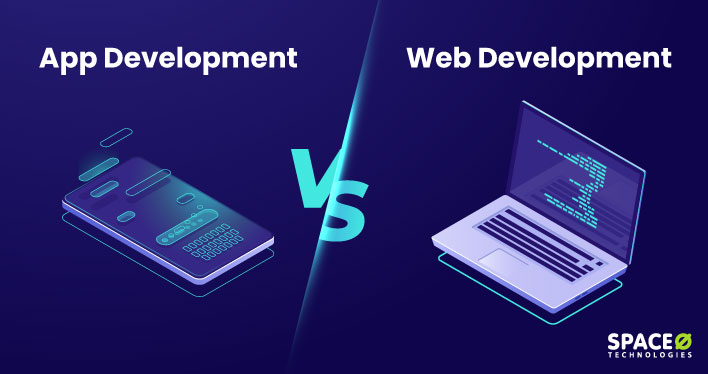Custom mobile app development cost is a frequent question among businesses looking to expand their digital presence. But, determining the exact price isn’t as straightforward as quoting a fixed number.
To stay competitive in this digital market, you need an app that stands out. A robust app customized to your business needs requires a custom app development company. But you must be wondering how much it would cost.
The cost of custom mobile app development is a question that often arises among companies who want to enhance and expand their digital presence. However, we cannot provide an exact cost, as the price varies based on many factors.
Thus, before you choose a custom app development company for your custom Mobile app development, understand the factors that affect your project’s cost so you can make an effective business plan.
If you are a company that considers a precise budget for app development costs that would incur during the whole project, Soft Tech Cube offers clear and accurate expenses without the need to mention the robust app development service they provide to their clients, smooth cooperation, and ultimately useful app development results.
Let’s return to our agenda for today—the cost of custom mobile app development. For your convenience, we will break down what influences the price of developing a custom mobile app so you can design your budget accordingly when hiring a custom app development company.
Factors Affecting Mobile App Development Costs
According to the Clutch survey, the average custom app development cost is around $5,000 to $10,000, which is the range for the delivery phase of your mobile development project. In addition, the average cost is much greater, with a median total of around $170,000.
This cost will even vary based on many factors. Let’s take a look at these factors:
1. App Intricacy
One of the primary drivers of app development costs is complexity. Generally, apps fall into three categories:
a) Simple Apps
These apps have basic features like login, a user interface with limited design complexity, and basic functionality. Examples include note-taking apps or fitness tracking apps.
Estimated Cost: $5,000 – $50,000
b) Medium-Complexity Apps
These include features like integration with APIs, real-time messaging, and more complex user interfaces. Think of food delivery or booking apps that require data synchronization and third-party integrations.
Estimated Cost: $50,000 – $120,000
c) Complex Apps
These high-end apps have advanced functionalities like real-time features, multiple integrations, custom animations, and sophisticated backend infrastructures. Examples include social media platforms or enterprise applications with robust data handling and security features.
Estimated Cost: $120,000 – $300,000 and beyond
Keep in mind that as complexity increases, so does the development cost. A simple app might cost around $40,000 to $60,000, while more advanced apps can exceed $300,000.
2. Platforms: Android, iOS, or Both?
Another important factor affecting the cost is whether you need your custom app development company to develop the app for a single platform or Android and iOS.
If you want an app for iOS and Android, remember that developing a native app for each platform means building unusual codebases, leading to higher development costs.
Nevertheless, there is an alternative option for cross-platform development tools. Cross-platform tools like React Native or Flutter are some of the best iOS and Android app development platforms. They will reduce the cost, allowing developers to write code once and apply it on both platforms.
However, the selection relies on your target audience and market. If your audience uses both platforms, cross-platform development may be ideal. If platform-specific performance is critical, you may need native apps for each platform.
For an approximate cost to develop a custom app for iOS or Android, consider several factors like the app’s complexity, features, and the platform chosen:
Platform: Estimated cost
iOS: $55,000–$300,000
Also, read more details on the cost ios app development services
Android: $50,000–$300,000
Cross-platform: $40,000–$150,000
3. Features and Functionalities
The more features and functionalities you incorporate into your app, the higher the cost. Following are some of the common features that can significantly influence your cost:
- User Authentication & Authorization—Login/signup features using email, social media accounts, or multi-factor authentication.
- Real-Time Updates—These features include Chat, notifications, or live data synchronization, such as in ride-hailing or food delivery apps.
- Payment Gateways—Integrate in-app purchases or payment gateways like PayPal or Stripe for transactions.
- Geolocation & Mapping—GPS services for location-based features or real-time tracking are commonly used in travel or delivery apps.
- Third-Party Integrations—Includes integration with external APIs like social media, databases, or cloud services to enhance functionality.
As you can see, the complex features mentioned above require additional time and development expertise, increasing the overall cost.
4. App Design and UI/UX
Another important factor is that it affects development costs. If you want a well-designed app with a polished user interface and smooth user experience, you will incur more costs as it requires much more time and resources.
Apart from that, other factors, including custom animations, responsive design elements, and interactive experiences, also influence the cost, which can range from a few thousand to tens of thousands of dollars, depending on the complexity of the App UI UX design.
Estimated Cost: $5,000 – $50,000
5. Development Team Location and Expertise
The next important factor is the location of the customer app development company you want to hire. If you hire from a global talent pool instead of a local custom app development company, the geographic location of the development team will greatly affect your app development costs. Moreover, these are the development rates that vary significantly across different regions:
- North America—App Developers charge the highest rates, typically from $100 to $200 per hour.
- Western Europe— is a little less pricey but delivers quality results, ranging from $80 – $150 per hour.
- Eastern Europe—Known for quality development at more moderate rates, costing around $50 to $100 per hour.
- India—A popular choice for cost-effective development, with rates ranging from $20 to $50 per hour.
Additionally, the development team’s expertise influences costs. Thus, senior developers with specialized knowledge, particularly in complex projects, can demand higher rates.
App Maintenance and Post-Launch Costs
It’s crucial to consider that app development is not a one-time expense. Post-launch costs add to the overall budget, such as ongoing app maintenance, bug fixing, and feature updates.
Most apps require regular maintenance to remain functional and competitive. Maintenance typically costs around 15-20% of the initial development cost annually.
Development Timelines and Project Management
Development timeframes can vary from a few weeks for straightforward apps to several months or even a year for complex apps. The longer the project duration, the higher the development cost, especially when accounting for project management, testing, and quality assurance.
Although the custom mobile app development timeline can range from 2-3 months for a simple app with basic functionality to 6 months or more for a complex mobile app custom development with advanced features, project management costs typically fall between $5,000 and $30,000 depending on the app’s complexity and the development team size, representing around 10-15% of the total project budget.
Development timelines and project management costs:
- Simple App: Basic features, single platform, straightforward design—2-4 months.
- Medium Complexity: More features, custom UI, potential integrations—4-6 months.
- Complex App: Advanced features, multiple platforms, real-time functionality—6+ months.
In addition, Agile development methodologies are often used to manage costs and timelines effectively. These methodologies emphasize iterative development and regular testing, ensuring that the app evolves as per the client’s requirements while staying within budget.
Additional Considerations
When budgeting for a mobile app, it’s important to consider the following additional factors:
a) App Store Fees:
Google Play and Apple’s App Store charge fees to publish your app. Apple charges a $99 yearly fee, while Google Play charges a one-time $25 fee.
b) Marketing Costs:
Promoting your app requires a marketing budget. Without proper marketing, your app might struggle to gain traction.
Estimated Social Media Advertising Per month cost: $2,000 to over $50,000
c) Security and Compliance:
If your app deals with sensitive data (e.g., health or financial data), ensuring compliance with security standards like GDPR, HIPAA, or PCI-DSS can also impact the overall development cost.
Estimated Cost: $10,000 to $100,000 or more
Conclusion
As a business or individual planning on hiring custom mobile app development companies for your custom mobile app, you need to consider the factors influencing mobile app development costs for effective budget planning.
So, whether you opt for simple or complex custom app development, working with an experienced developer or a custom app development company and clearly defining your requirements will ensure you get the best return on investment.
While the initial cost might appear hefty, a well-designed app can bring immense value to your business, increase customer engagement, enhance user experience, and generate revenue.
Frequently Asked Questions (FAQs)
How much to charge for a custom application?
Considering all the factors, such as an app’s complexity, platforms, app design (UI/UX), functionalities and features, team location, and many others, the estimated cost that mobile software development companies charge is between $10,000 and $50,000 for a basic app, with more complex apps reaching upwards of $300,000 or more.
Why build a custom app?
There are many reasons why you need custom mobile app development services. For example, they offer frivolity, control over scalability, integration, security, and efficiency. However, considering all these factors, hiring a custom app development company can be hefty, but it’s worthwhile in the long term.
How much does it cost to customize an app?
The cost to customize an app can range widely, typically between $5,000 and $40,000 or more, depending on the complexity of the customizations, the features you want to add, the platform you’re targeting, and where you source the development work (freelancer, agency, etc.).
Why is custom app development a better choice?
Unlike traditional apps, custom mobile app development is a better choice because it allows fully customized mobile apps that precisely match a business’s unique needs. You can hire a freelancer or custom app development company to help you build a robust app.
How much does it cost to pay a company to build an app?
The custom app development company that offers custom app soft tech solutions can charge you between $50,000 and $300,000, depending on the app’s intricacy.
Discover: 10 Benefits Of Custom Mobile App Development In 2024

















